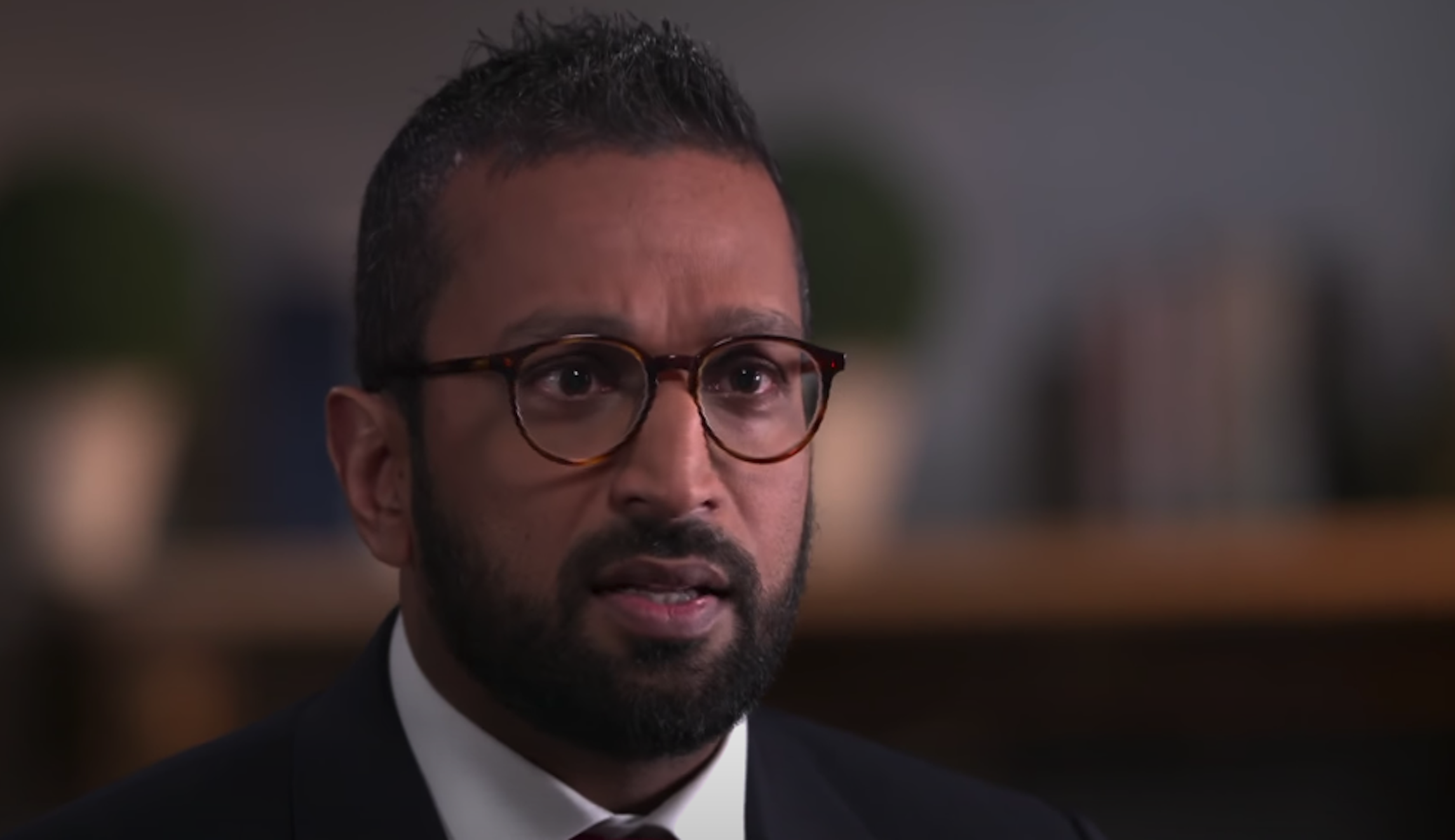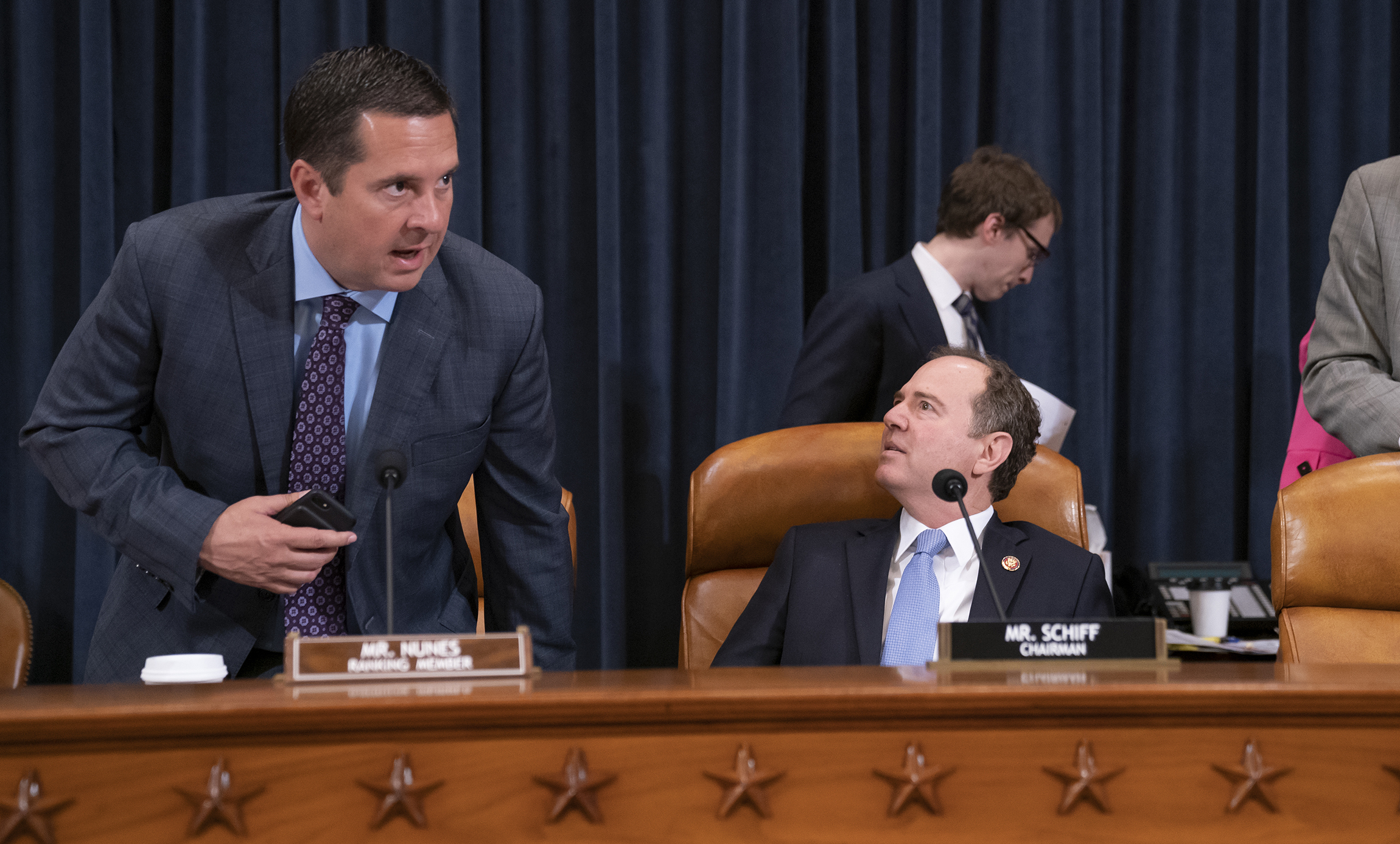The Justice Department is investigating whether Kash Patel, a former high-ranking Trump administration official who was instrumental in revealing secrets behind the “Russiagate” controversy, improperly disclosed classified information, according to a new report.
The alleged inquiry was revealed in a column Friday by Washington Post columnist David Ignatius, who cited “two knowledgeable sources who requested anonymity because of the sensitivity of the probe.”
The sources said the investigation began this year with a complaint submitted by an intelligence agency, which was not identified. The column said the sources would not provide further details, and Patel could not be reached for comment. The Washington Examiner reached out to the Justice Department for comment.
Toward the end of the Trump administration, Patel last worked as chief of staff to acting Defense Secretary Christopher Miller after serving as a National Security Council staffer and a top aide to now-former acting Director of National Intelligence Richard Grenell.
Prior to joining the White House, Patel was an aide to Republicans when they controlled the House Intelligence Committee under then-Chairman Devin Nunes, assisting their own investigation into Russian interference in the 2016 election. Democrats decried the GOP effort as a partisan scheme to shield Trump from special counsel Robert Mueller’s inquiry, which ultimately “did not establish” any criminal Trump-Russia conspiracy.
While working with Nunes, Patel helped author the 2018 memo on Foreign Intelligence Surveillance Act alleged abuses during the Russia investigation. Though hotly criticized by Democrats at the time, it was largely borne out as quite accurate by DOJ Inspector General Michael Horowitz’s report in 2019 and recent declassifications.
In February, Patel told RealClearInvestigations a further declassification wish list was sent to Trump’s White House by members of Congress.

On that list, Patel said, was a classified House Intelligence Committee report that criticized the analytic tradecraft in the Obama administration’s 2017 intelligence community assessment’s conclusions about Russian President Vladimir Putin’s motivations in the interference campaign leading to the 2016 election. However, despite an eleventh-hour declassification order by Trump before he left office last month, it has remained outside the public’s view.
Patel said pushback from the intelligence community impeded their efforts to have the secret report made public, citing national security concerns such as risking sources and methods, although he insisted that their efforts conducted in a “professional fashion” that did not sacrifice lives or crucial relationships.
During a Fox Business interview on Jan. 20, the day of President Joe Biden’s inauguration, Patel said that he believed roughly “99%” transparency had been achieved in the “Russiagate” controversy.
Patel told the Epoch Times in March about his strategy for writing the GOP FISA memo, released in early 2018 over Democratic claims of politicization, that accused officials of misusing the Foreign Intelligence Surveillance Act to spy on ex-Trump foreign policy adviser Carter Page.
The Republicans released their four-page memo in February 2018, finding that British ex-spy Christopher Steele’s anti-Trump dossier formed an essential part of the initial and all three renewal FISA applications against Page, who has denied any wrongdoing and was never charged with a crime.
Former FBI Deputy Director Andrew McCabe testified that no FISA warrant would have been sought from the FISA court without the Steele dossier information.
The political origins of the Steele dossier were known to senior DOJ and FBI officials but excluded from the FISA applications, and DOJ official Bruce Ohr met with Steele beginning in the summer of 2016 and relayed to the DOJ information about Steele’s bias. Steele told Ohr that he was desperate that Trump not get elected and was passionate about him not becoming president.
As Patel would tell it, House Intelligence Committee Chairman Adam Schiff “took the bait and put in so much more information in his [rebuttal] memo than we did in ours because we knew we would be able to use that information later and prove how wrong they were. It would just take a little bit of time. So that was the strategy behind it.”

Horowitz issued a report in December 2019 largely vindicating the “Nunes memo,” criticizing the Justice Department and the FBI for at least 17 “significant errors and omissions” related to the FISA warrants against Page, for concealing potentially exculpatory information from the FISA court related to denials by a number of Trump associates, and for the bureau’s reliance on the discredited Steele dossier, which played a “central and essential” role in the FBI’s decision seeking electronic surveillance.
Patel also got wrapped up in the House Democrats’ Ukraine impeachment investigation while at the NSC. He denied being a back channel to Trump on Ukraine and filed a $25 million libel lawsuit over reporting that claimed he was feeding Trump information about Ukraine. Patel criticized Schiff, tying him to the leaks from the closed-door impeachment hearings.
In January, the Justice Department quietly closed without charges the investigation into leaks of likely classified information about intercepted phone calls between retired Lt. Gen. Michael Flynn and a Russian envoy to the press. They were reported by none other than Ignatius in early 2017.
Michael Sherwin, the then-acting U.S. attorney for the District of Columbia, signed off on closing the inquiry into the disclosure of the December 2016 calls between Trump’s first national security adviser and Russian Ambassador Sergey Kislyak at the recommendation of prosecutors in Washington, D.C., a person familiar with the investigation told the New York Times. The report said that the inquiry, code-named Operation Echo, looked into Obama administration officials with access to the sensitive contents of the discussions, but it “ultimately found no wrongdoing.”
CLICK HERE TO READ MORE FROM THE WASHINGTON EXAMINER
After just a few weeks on the job, Flynn resigned as White House national security adviser in February 2017 amid the controversy that followed Ignatius reporting in the Washington Post about his December 2016 contacts with Kislyak. Flynn fought to dismiss the government’s case against him throughout 2020 after he pleaded guilty in December 2017 to lying to investigators about those conversations during the presidential transition period. The U.S. government intercepted Flynn’s discussions with Kislyak, after which now-fired FBI agent Peter Strzok and FBI agent Joseph Pientka interviewed him on Jan. 24, 2017, about the talks. The Justice Department dropped its case against Flynn last year, and he received a pardon from Trump on Thanksgiving Eve.
The New York Times reported last April that now-special counsel John Durham was looking into media leaks, which dominated the Trump transition period and the early days of the Trump administration. He was reportedly looking into a Jan. 12, 2017, article in the Washington Post by Ignatius, which said that Flynn “cultivates close Russian contacts” and cited a “senior U.S. government official” who revealed that Flynn had talked to Kislyak on Dec. 29, 2016, the same day that former President Barack Obama expelled 35 Russian officials. Ignatius also raised the possibility that Flynn had violated the Logan Act, a rarely enforced law, which some Obama officials considered using against Flynn.
A follow-up article by the Washington Post on Feb. 9, 2017, revealed likely classified details from Flynn’s monitored calls with Kislyak, citing “nine current and former officials” who were in “senior positions at multiple agencies at the time of the calls.”
Then-Attorney General Jeff Sessions confirmed on Fox News in 2018 that he believed these “leaks of classified documents” were “a violation of the law.” Sessions said the Justice Department was “pursuing it aggressively.”

